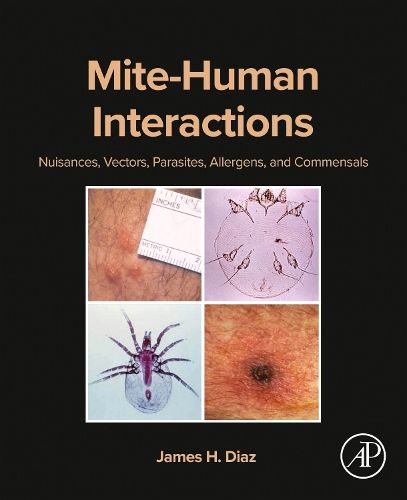Readings Newsletter
Become a Readings Member to make your shopping experience even easier.
Sign in or sign up for free!
You’re not far away from qualifying for FREE standard shipping within Australia
You’ve qualified for FREE standard shipping within Australia
The cart is loading…






Mite-Human Interactions: Nuisances, Vectors, Parasites, Allergens, and Commensals offers coverage on the neglected topic of mites, their diversity, and the conditions caused or vectored by them. The first part of the book differentiates the types of mites as arthropod-borne infectious disease vectors (scrub typhus, rickettsialpox), as bothersome pests (animal and itch mites), as potential allergens (dust and food mites), and as human commensals (follicle mites). The book further provides information on how to diagnose and treat mite-borne infections, infestations, and allergies and recommends ways to prevent and control them.
In addition, the book also delves into topics such as the potential psychological impact of mites with the unusual condition of delusional parasitosis, also known as known as Morgellons disease and addresses the socioeconomic disparity issues in infections, infestations, and mite-associated conditions.
$9.00 standard shipping within Australia
FREE standard shipping within Australia for orders over $100.00
Express & International shipping calculated at checkout
Mite-Human Interactions: Nuisances, Vectors, Parasites, Allergens, and Commensals offers coverage on the neglected topic of mites, their diversity, and the conditions caused or vectored by them. The first part of the book differentiates the types of mites as arthropod-borne infectious disease vectors (scrub typhus, rickettsialpox), as bothersome pests (animal and itch mites), as potential allergens (dust and food mites), and as human commensals (follicle mites). The book further provides information on how to diagnose and treat mite-borne infections, infestations, and allergies and recommends ways to prevent and control them.
In addition, the book also delves into topics such as the potential psychological impact of mites with the unusual condition of delusional parasitosis, also known as known as Morgellons disease and addresses the socioeconomic disparity issues in infections, infestations, and mite-associated conditions.